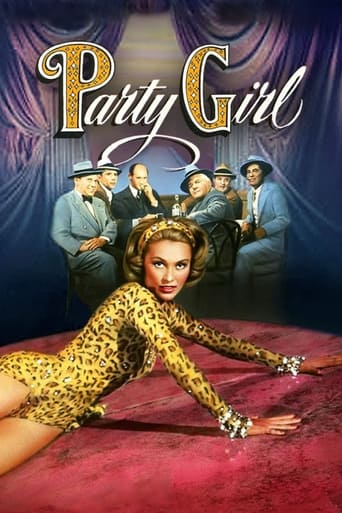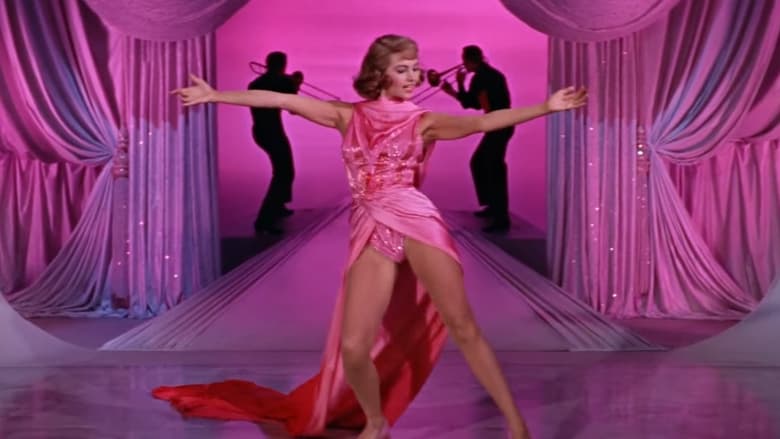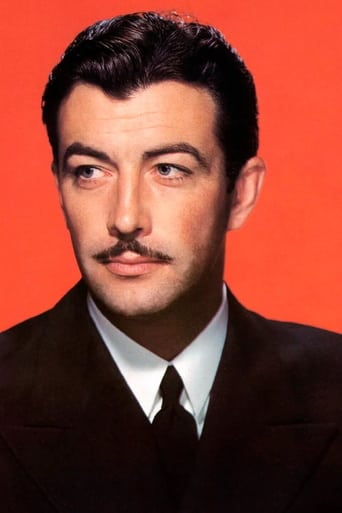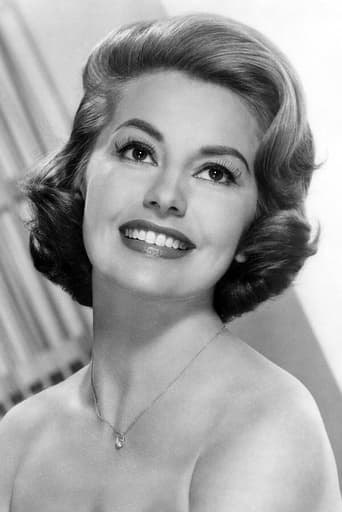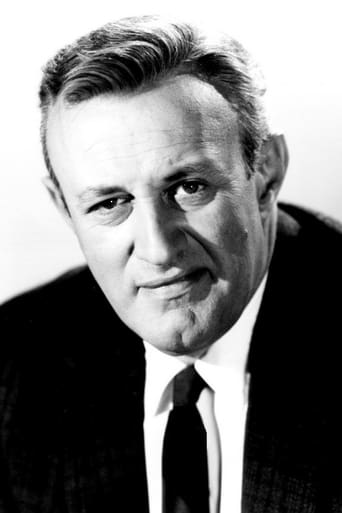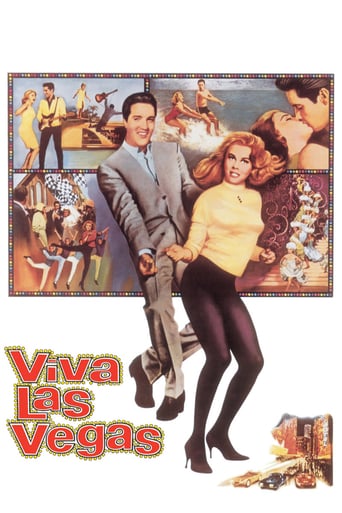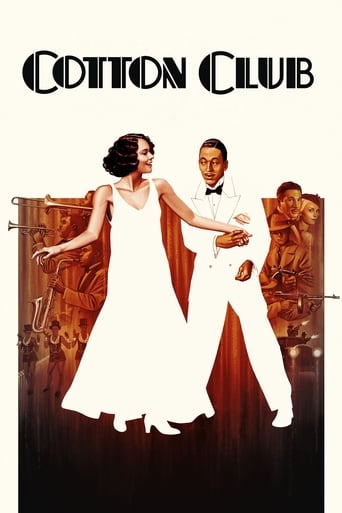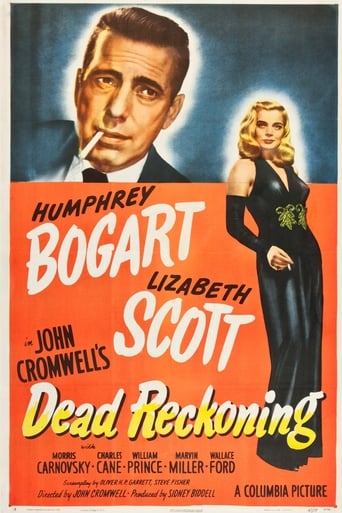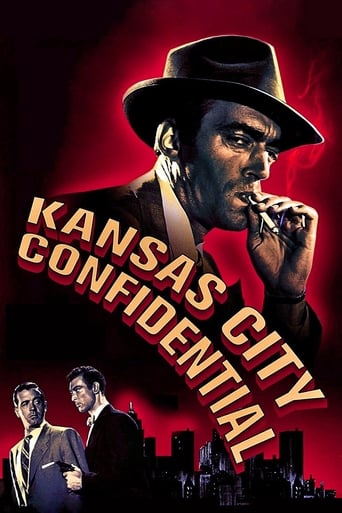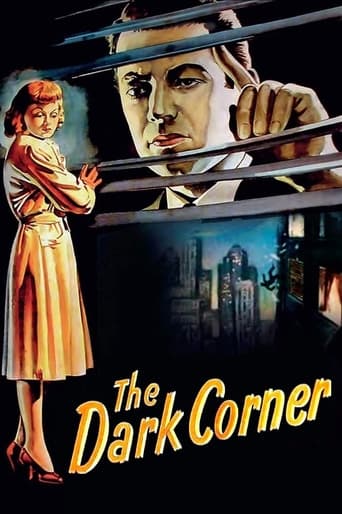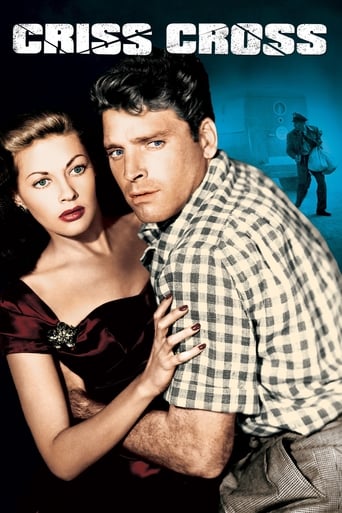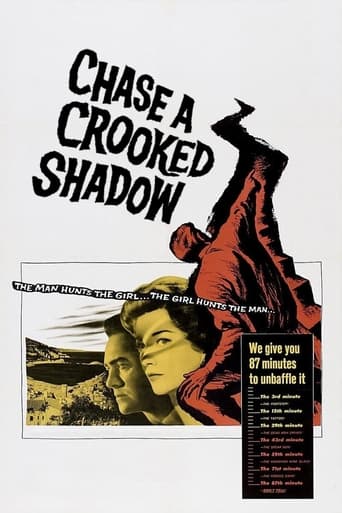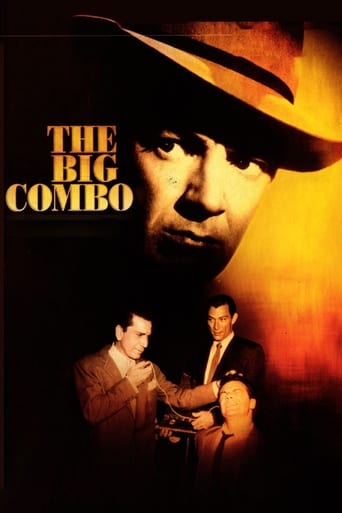Party Girl (1958)
Slick lawyer Thomas Farrell has made a career of defending mobsters in trials. It's not until he meets a lovely showgirl at a mob party that he realizes that there's more to life than winning trials. Farrell tries to quit the racket, but mob boss Rico Angelo threatens to hurt the showgirl if Farrell leaves him.
Watch Trailer
Cast


Similar titles
Reviews
Don't listen to the negative reviews
Fun premise, good actors, bad writing. This film seemed to have potential at the beginning but it quickly devolves into a trite action film. Ultimately it's very boring.
I really wanted to like this movie. I feel terribly cynical trashing it, and that's why I'm giving it a middling 5. Actually, I'm giving it a 5 because there were some superb performances.
what a terribly boring film. I'm sorry but this is absolutely not deserving of best picture and will be forgotten quickly. Entertaining and engaging cinema? No. Nothing performances with flat faces and mistaking silence for subtlety.
Really a stunning production. The use of color, especially during the dance sequences, was mesmerizing. It seems odd to say that about what is essentially a film noir, but the fireworks of sets and costumes make Party Girl unique.Still, it takes at least an hour for the plot to get rolling. Then the sociopath Cookie suddenly puts Robert Taylor's character in jeopardy; and Taylor isn't in the clear until the last scene. All the while we're left wondering if Cyd Charisse's character is going to be doused with acid. Fortunately, the prosecutor comes up with a clever strategy to force Lee J. Cobb's hand. It would seem obvious, though, that Vicki (Cyd Charisse) will be abducted by Angelo's (Cobb's) goons. Also, after Taylor's released from jail and finds Cobb, why would the police launch an all-out assault on the building, since Taylor could easily get killed too? The fact that he had a sentimental talk with the cops at the very end shows that they were on the same side.The movie almost lost me with the side-trip to Europe. What was the purpose of Taylor's having an old injury that needed surgery anyway? If we had gone directly from Taylor's romance with Charisse right to the complications with Cobb and Cookie we would have lost nothing. We would've been spared the rare on-location driving scene from the doctor's office in which (as noted in the Goofs column) all the other cars are from the 1950s.Which leaves me wondering: why the movie was set in the 30s? There were still plenty of ruthless gangsters to worry about in 1958. And, well, why not make Cobb an Irish gangster? He looks about as Italian as a Viking. Taylor's plea to Cobb that, despite all his bravado, the gangster is really a decent guy, who wouldn't stoop so low as to disfigure a woman, is full of tension. It's clear that Cobb is fascinated by Taylor, almost spell-bound; but never has the courage to stop striking out against his perceived enemies. Except for that well-written scene, though, Taylor's performance isn't very nuanced, not even as much as Cobb's. The fact that Taylor's Farrell is married has almost no bearing on the plot. That would be strange in any era, even more so in tbe 30s or 50s. A strange, awkwardly-paced, but extremely watchable movie. Charisse's dancing is great stuff, and that nightclub just glows beautifully. Cobb is at his caged-animal best, and there's plenty of wild gun-play. Party Girl is definitely worth looking at.
Tommy Farrell is a leading criminal lawyer in Prohibition-era Chicago who specialises in defending gangsters. He has a particularly close relationship with leading Mafia boss Rico Angelo, loosely based on Al Capone. Farrell's practice is a lucrative one, but when he falls in love with Vicki Gaye, a beautiful showgirl, he tries to cut his ties to organised crime. Angelo, however, is not a man to take "no" for an answer, and Farrell quickly realises that by leaving the racket he could be placing both Vicki and himself in danger.That sounds like the plot of a standard film noir. "Party Girl", however, does not really fit into that category. For a start it was filmed in colour, which makes it unusual among fifties crime dramas and rules it out from being considered as film noir. The use of low-key black-and-white photography is generally regarded as an essential noir characteristic, and director Nicholas Ray had earlier made a number of successful films of this type, most notably "In a Lonely Place", but in the later part of his career he became known for his skillful use of colour in films like "Johnny Guitar". Vicki's profession is used as an excuse to introduce extended dance sequences of a type not normally associated with serious crime drama and more reminiscent of scenes from musicals such as "Singin' in the Rain" or "Silk Stockings", both of which also starred Cyd Charisse. Even the title "Party Girl" seems more suited to a comedy than to a serious drama.As a crime drama the film is nothing out of the ordinary, certainly not in the same class as "In a Lonely Place" or Ray's great melodrama, "Rebel without a Cause". Lee J. Cobb as Angelo makes an effective villain, as he normally did, but Robert Taylor is rather staid as Farrell. As for Charisse, although she was one of the most beautiful actresses in the Hollywood of the 1950s, few people would have regarded her as one of the most talented, and she doesn't do a lot here to contradict that opinion. Except, of course, in dance sequences, where she gets the chance to show yet again that although her acting skills may have been limited, there were few leading ladies of the period who could dance so well or who could look so sexy while doing so.It is, in fact, these scenes which make "Party Girl" still watchable today; they were not only those superbly choreographed but also superbly photographed, allowing Ray to make good use of his gift for colour. He is generally associated with serious films, but on the evidence of this one he could perhaps also have had a career as the director of more light-hearted fare. 6/10
Having passed up this movie many times, I decided to check it out when it came up again on TCM recently. Now that you can tape something and scan through, it is easier to evaluate before you waste your time. Going through, I noticed Robert Taylor coming across better than I've ever seen him. He was the main deterrent before. I've never thought him good enough looking to put up with, especially when the main lead. But seeing Lee J. Cobb in it and really liking the deep color, I became interested. Also, have always liked Cyd Charisse's dramatic persona – generally smooth, no overstatement. Her musical numbers were rather enlarged for the type of film, but guess they couldn't resist. And, MGM could really come up with some odd titles.Taylor proved to be convincing and capable throughout. Enjoyed him and Charisse together and definitely the visual. Cobb seems to have been used a lot for the more gregarious type, like the crime boss here. I initially saw him in roles as the no nonsense good guy, and I think I prefer him as that. He played that very effectively in "The Virginian" television series. He was the strong guiding hand, somewhat a father figure, who could bring up the volume when needed and take care of any foolishness, with dispatch. His screen time as such was my favorite part of that interesting series.Hey, it's a Hollywood movie, which is going to have some form of the Hollywood treatment, both good and bad. If you can anticipate and accept any given film's set of excesses and idiosyncrasies, it's easier to enjoy what is enjoyable to you. This one is liberally laced with improbables, for one thing. Again, expect that and other unrealities from old Hollywood. It's the nature of the genre. I certainly prefer it to where they've gone now. For this one, I could ignore the improbables and move along with things. The relationship of Taylor and Charisse (and the quality of the visual) captured this movie out from the ranks of ones I would usually pass over.
This movie makes more sense if you watch the documentary MGM: When the Lion Roars, about the history of MGM. According to the documentary, 1936-1946 was MGM's Golden Era. However, after the war, tastes in film changed, but MGM refused to change with the times or the tastes of post-war America. By the 1950's MGM was a Lion in Winter. Thus this rather split personality film begins to make sense from the context of its manufacturer. It can't decide what kind of film it wants to be, going back and forth between the big musical spectacles that MGM was famous for since the dawn of sound, to hard-hitting gangster characters and antics in the Warner Brothers tradition, to social commentary on the plight of the disabled in modern times and a beauty and the beast romance. If you know the chaos into which MGM is plunged by 1958, this enables you just to sit back and enjoy the film, which does have a great deal to offer.The movie is badly mislabeled, since it really is not that centered on party girls at all. Instead it is basically a prohibition era romance between a beautiful showgirl played by Cyd Charisse and a lame mob lawyer played by Robert Taylor. Already dumped by one glamor girl who just wanted his money but was repulsed by his misshaped body, Taylor's character is understandably reluctant to get involved again. However, soon the pair are in love and Taylor's character gains the confidence to want to stop being the mob's mouthpiece. However, leaving the mob is not such a quick and clean business, whether you are an attorney or just a muscle man.Taylor gives a very good performance in this one, and Lee J. Cobb's performance as a mobster looks like it was the inspiration for Robert De Niro's portrayal of Al Capone in 1987's The Untouchables, in at least one scene anyways. This one is definitely worth your time if it comes your way.

